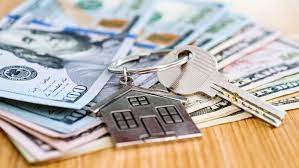Simply Asset Finance Enables Payout in Under Eight...
- 12.02.2026 10:00 am
UK Confirms Start Date for BNPL Regulation
- 11.02.2026 09:10 am
Nationwide Becomes First Lender to Allow Mortgage...
- 10.02.2026 12:25 pm
Wolters Kluwer Launches New Expert AI Enhancements to...
- 06.02.2026 10:45 am
Adyen and Fresha Surpass £4 Million in Capital Issued...
- 03.02.2026 11:40 am
UnaFinancial Surpasses $3 Billion in Loans Issued
- 03.02.2026 10:20 am
YouLend and Intuit Team Up To Bring Embedded Capital...
- 03.02.2026 10:05 am
Finastra Enhances Commercial Loan Origination with...
- 02.02.2026 02:05 pm
PPRO Partners with Scalapay To Unlock Access to...
- 02.02.2026 09:25 am
OCBC Strengthens Institutional Capabilities With New...
- 28.01.2026 08:25 am
Happy Money Launches Next-Generation Credit Model,...
- 27.01.2026 02:05 pm
Gatehouse Bank Reduces Rental Rates on All Five-Year...
- 27.01.2026 09:35 am






















